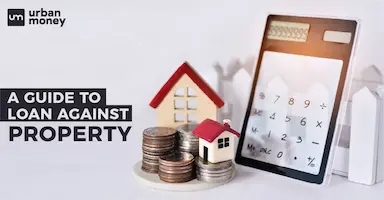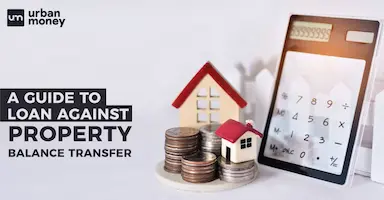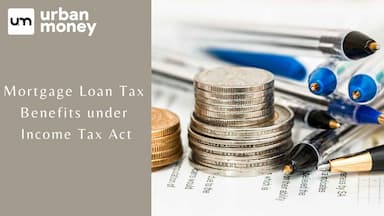- Home
- Loan Against Property
- Punjab National Bank Housing Finance Loan Against Property
PNB Housing Loan Against Property
Apply for Loan Against Property(LAP)
Punjab National Bank Housing Finance LAP
Interest Rate
9% - 15.25%
Loan Amount
₹2L - ₹5Cr
EMI Per Lakh
₹2,076 - ₹2,392
Processing Fees
Pre-Payment Charges
- NIL – In case property is in the name of Individual & loan.
Features and Benefits of PNB Housing Loan Against Property
- A vast line-up of non-home loan offerings including loans for buying and constructing commercial properties, loans for commercial and residential properties, lease rental discounting and more.
- All-India network of branches.
- Efficient service models with doorstep facilities for swift disbursal and processing.
- Possibilities for expanding the loan amount in case of an increase in costs.
- Dedicated employee team for ensuring customer satisfaction.
- Flexible options for repayment.
PNB Housing Loan Against Property Overview
PNB Housing offers loans against the mortgage of any existing commercial or residential property at the branch locations. End-use for the LAP may be for business purposes, foreign vacations, weddings or higher education of children, family expenses, medical costs, purchasing appliances, etc. You can always apply for PNB Housing loan against property without any hitches and get the benefits of a seamless PNB Housing loan against property online application procedure. The maximum amount is up to 60% of the property’s market value after certification by the lender-approved valuer or the consumer’s repayment capacity (whichever is lesser).
Eligibility is worked out on the basis of factors like age, income, occupation, and qualifications. The income of the borrower and co-borrowers may be joined for working out loan eligibility. Disbursement happens only after technical appraisal of the property and completion of all legal documentation procedures. The loan is first directly disbursed to the customer as a lump sum in his or her bank account. Repayment is done via EMIs and through ECS or post-dated cheques over a maximum duration of 20 years.
PNB Housing Loan Against Property Interest Rate
Rates of interest are determined on the basis of the credit score and many other factors. Here is a table for your perusal:
| Credit score (any loan amount) |
Loan Against Commercial Property | Loan Against Residential Property (LAP) | Loan against Plot/ Loan against Special Property |
| >= 800 | 7.75% to 8.25% | 7.75% to 8.25% | 10.50% to 11.00% |
| >775 to 799 | 8.50% to 9.00% | 8.50% to 9.00% | 10.50% to 11.00% |
| >750 to <775 | 8.50% to 9.00% | 8.50% to 9.00% | 10.50% to 11.00% |
| > 725 to < 750 | 8.75% to 9.25% | 8.75% to 9.25% | 10.50% to 11.00% |
| > 700 to < 725 | 9.20% to 9.70% | 9.20% to 9.70% | 10.50% to 11.00% |
| > 650 to < 700 | 10.30% to 10.80% | 10.30% to 10.80% | 10.50% to 11.00% |
| Up to 650 | 10.15% to 10.65% | 10.15% to 10.65% | 10.50% to 11.00% |
How PNB Housing Compares with Other Lenders?
| HDFC Bank | 8-8.95% per annum |
| IDFC First | 8% per annum onwards |
| ICICI Bank | 8.35-10% per annum |
| SBI | 8.45-10% per annum |
Documents Required for PNB Housing Loan Against Property
Here is an extensive list of documents that are required in both categories:
| Salaried Borrowers | Self Employed Borrowers |
| Application Form and Photograph | Application Form and Photograph |
| Proof of Age | Proof of Age |
| Proof of Address | Proof of Address |
| Educational Qualifications | Educational Qualifications |
| Last 3 months’ salary slips | Proof and certificate of business existence with business profile |
| Last two years’ Form 16 | ITR for last 3 years with P/L account and audited/certified balance sheet by CA |
| Bank statements for the last 6 months | Bank statements for the last 12 months (both business and individual) |
| Property Documents | Property Documents |
PNB Housing Loan Against Property Customer Care Number
You can contact the customer care number- 1800 120 8800.
Quick Links
Loan Offers By Punjab National Bank Housing Finance's
Loan Against Property by Nationalized Bank
Loan Against Property by Private Bank
- YES Bank Loan Against Property
- ICICI Bank Loan Against Property
- CITI Bank Loan Against Property
- Kotak Bank Loan Against Property
- IDFC FIRST Bank Loan Against Property
- RBL Bank Loan Against Property
- Federal Bank Loan Against Property
- Axis Bank Loan Against Property
- IDBI Bank Loan Against Property
- Housing Development Finance Corporation Loan Against Property
- HDFC Sales Loan Against Property
- HDFC Bank Loan Against Property
- DCB Bank Loan Against Property
- IndusInd Bank Loan Against Property
- HSBC Loan Against Property
- Emirates NBD Loan Against Property
- Reliance Capital Loan Against Property
Loan Against Property by NBFC
- Tata Capital Financial Services LTD Loan Against Property
- Vastu Housing Finance Loan Against Property
- Muthoot Finance Ltd Loan Against Property
- Aadhar housing Finance Loan Against Property
- Clix Capital Loan Against Property
- Home First Finance Company Loan Against Property
- Piramal Finance Loan Against Property
- Shriram Urban Co Operative Bank Limited Loan Against Property
- InCred Financial Services Loan Against Property
- Hero FinCorp Loan Against Property
- IIFL Finance Loan Against Property
- Tata Capital Housing Finance Limited Loan Against Property
- Ujjivan Small Finance Bank Loan Against Property
- Cholamandalam Finance Loan Against Property
- Arka Fincap Limited Loan Against Property
- IndiaBulls Loan Against Property
- Digikredit-SME Corner Loan Against Property
- Godrej Housing Finance Loan Against Property
- Hero Housing Finance Loan Against Property
- Poonawalla Fincorp Limited Loan Against Property
- L&T Finance Loan Against Property
- Aditya Birla Finance Limited Loan Against Property
- Edelweiss Financial Services Loan Against Property
- DHFL Loan Against Property
- Capital First Ltd. Loan Against Property
- Bajaj Finserv Loan Against Property
- Capri Global Loan Against Property
- SMFG India Credit Company Ltd Loan Against Property
Latest from the Loan Against Property Blog
Get in-depth knowledge about all things related to Loan Against Property and your finances

Unlock Your Property’s Value with Loan Against Property
Loan Against Property or a property loan is a financial assistance tool available with an immovable asset or real estate as collateral. This secured loan can be used for myriad reasons instrumental in

How to Get Loan Against Property Without Income Proof?
When you pledge your residential or commercial property as collateral to the lender and borrow a specific amount in return, it is known as a loan against property or LAP. Simply put, it is a loan you

Complete Details Loan Against Property Balance Transfer
A balance transfer is a facility that allows a customer to switch their lender for an improved or lower interest rate and services. Consequently, the new bank will be liable to pay the outstanding loa

Mortgage Loan Tax Benefits under Income Tax Act
A Loan Against Property is a secured advance amount that users get against their mortgaged commercial or residential property. This amount of funds is not restricted to being used for a certain purpos

7 Factors to Consider Before Opting for a Loan Against Property Balance Transfer
A loan against property at higher interest rates can drain you mentally. But, what if we say you can diminish the burden of your interest rates against such a loan? A loan against property balance tra


